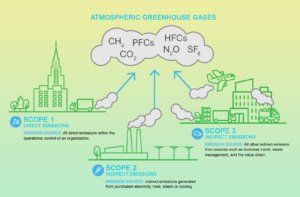
Moving organizations to carbon neutrality: the role of carbon offsets
Mike Edwards
Features Maple Leaf Foods Schneider Electric Carbon offsets give organizations the means to directly, positively impact their GHG emissions.
Carbon offsets give organizations the means to directly, positively impact their GHG emissions. Progressive organizations are seeking powerful solutions to their most pressing environmental impacts, and carbon offsets can be an affordable and credible means to achieving carbon neutrality—particularly in the absence of technological or alternative solutions.
Increasingly, companies are recognizing that reducing reliance on carbon-based fuel sources is imperative. Combustion of these fuels contributes to climate change and poor air quality. While leading corporations continue to evaluate and implement reductions to their greenhouse gas footprints via energy efficiency, fuel switching, supplier engagement, and other strategic solutions, it remains difficult to fully eliminate the use of carbon-based fuels.
Carbon offsets neutralize the impact of onsite fuel combustion as well as air travel, logistics & transportation, waste disposal, natural gas consumption, and more. They provide critical financial support to projects that remove, prevent, or sequester greenhouse gases from the atmosphere. These projects vary widely in their scope and use a variety of emission reduction technologies, including reforestation and fuel switching. Offset projects all over the world have attractive co-benefits including improved human health, job creation, and species preservation.
 There is a rapidly growing corporate voluntary market for the purchase of carbon offsets. Increasingly, corporations including Microsoft, the Walt Disney Company, and Maple Leaf Foods are using carbon offsets as a key component to their environmental impact reduction strategy.
There is a rapidly growing corporate voluntary market for the purchase of carbon offsets. Increasingly, corporations including Microsoft, the Walt Disney Company, and Maple Leaf Foods are using carbon offsets as a key component to their environmental impact reduction strategy.
These purchases provide an impactful solution for helping an organization to achieve carbon neutrality. Offsets are rigorously verified to ensure that they are sourced and retired effectively, and chain of custody can be guaranteed, providing companies with the transparency and validity necessary to support their environmental impact reduction claims. The most widely-respected environmental NGOs on climate change all support carbon offsets as a viable way to address operational emissions.
To read more, see white paper from Schneider Electric
Print this page